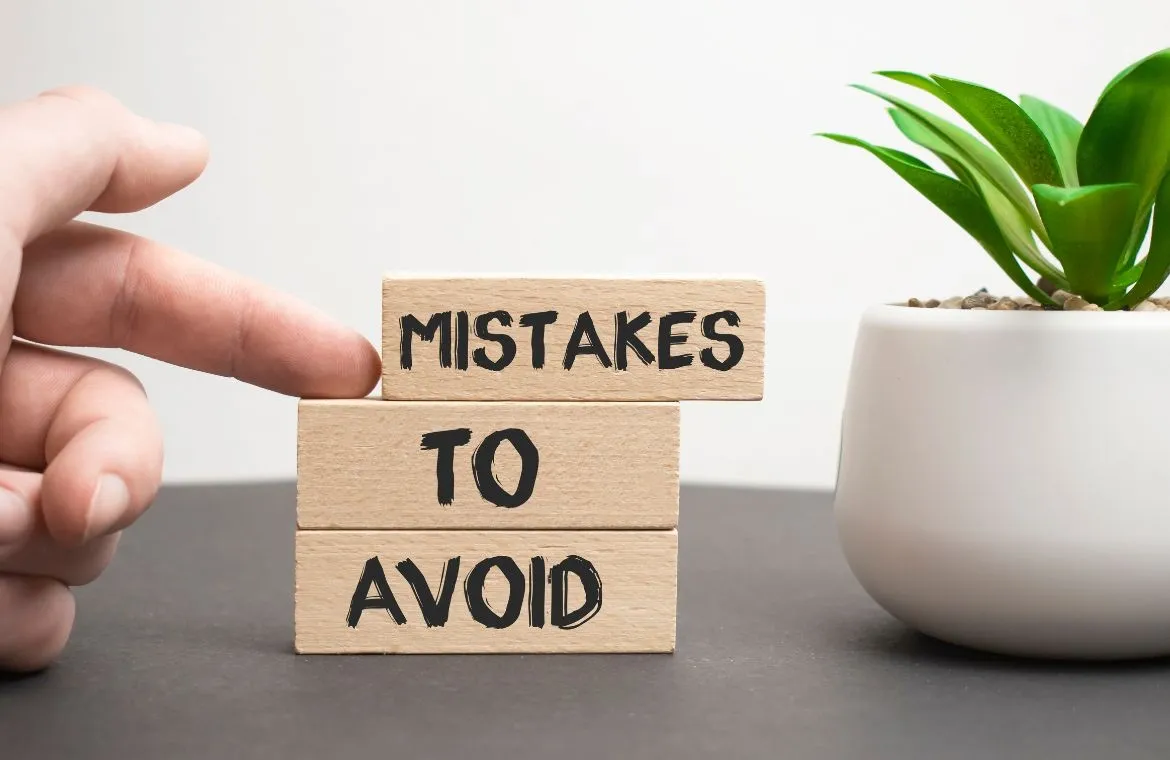Common Interview Mistakes and how to avoid it as fresher?

For most fresh graduates, the first job interview can feel exciting and nerve-wracking at the same time. You’ve worked hard for your degree, polished your resume, and sent countless applications, but the real test begins when you sit across from the interviewer.
This blog will help you spot the most common interview mistakes and show you how to avoid them, so you can step into your interview with confidence and turn that opportunity into a career-starting success.
Also read: How to explain a project in an interview as a fresher?
Common Mistakes in Interviews and How to Avoid Them?
Interview success can be tough for fresh graduates who lack experience. You need to know what works and what doesn't. Let's look at some common mistakes and ways to dodge them.
1. Insufficient Company Research
Most candidates make a basic mistake - they show up without researching the company. You should check out the company's website, read their mission statement and learn about their products before your interview. This homework shows you care and helps you link your skills to what the company wants.
2. Weak First Impressions
You have just 7 seconds to make your mark, and this is vital to your success. Show up 10-15 minutes early, give a firm handshake, and maintain good eye contact.
Dress a notch above the company's regular dress code. Your body language matters too - don't slouch, cross your arms, or fidget as these hint at disinterest or nerves.
3. Overlooking Resume Details
Not knowing your own CV can hurt your chances badly. Recruiters take just 7.4 seconds to scan your resume, but they expect you to know every detail.
4. Poor Communication Skills
Words make up only a small part of communication. Listen carefully to what the interviewer asks. Speak with clarity and confidence, and skip the jargon unless it matters. Brief, clear responses work best.
5. Lack of Preparation for Common Questions
Blanking out on basic questions shows you didn't prepare well. Questions about strengths and weaknesses are standard.
6. Overconfidence or Underconfidence
Finding the right confidence level matters - both extremes can hurt your chances. Too much confidence looks like arrogance, while too little makes you seem unsure. Show confidence in your skills but stay eager to learn and grow.
7. Not Asking Questions
Skipping questions at the end might make you look uninterested. Have smart questions ready about the role, team dynamics, or company culture to show you're excited about the job.
Other Mistakes That Can Cost You the Job
Graduate job seekers often make subtle mistakes that can hurt their chances of getting their dream role, beyond the common interview errors we've covered.
Discussing Salary Too Early
Talking about money too soon can send the wrong signals. Your cover letter and first interview should stay clear of salary discussions. The focus should be on showing what you can bring to the table. Good employers look for candidates who care about more than just the paycheck.
Ignoring Body Language
Your non-verbal cues tell a powerful story. Simple things like nodding to show you're engaged or using open gestures can affect how others see you.
Arriving Late or Too Early
Getting your arrival time right needs careful planning. The sweet spot is 10-15 minutes before your scheduled interview. Getting there more than 15-20 minutes early can put pressure on the interviewer and mess up their schedule.
How to Avoid These Mistakes and Why It Matters?
Getting your interview right takes more than avoiding mistakes; you just need to prepare and practice well. Here are proven strategies that will help you succeed in your next interview.
1. Like a Professional
Start by really researching the company. Take time to understand their mission, recent news, and culture. Review the job description to spot key skills the employer wants.
Think of examples from your past experiences that showcase these skills. Your confidence will improve a lot when you practice with mock interviews.
2. Practice Confident Communication
Good communication is more than just words. A calm and measured speaking pace shows control and helps interviewers understand you better. Active listening is a vital part; give the speaker your full attention, don't interrupt, and keep good eye contact.
3. Polish Your Professional Image
First impressions can make or break your interview. Pick professional clothes that line up with the company culture but lean toward formal.
Clean, pressed clothing and good grooming show attention to detail. This polished look makes you appear more credible and trustworthy.
4. Stay Honest and Positive
Trust builds when you're honest with potential employers and prevents future stress. Being upfront about your strengths and limitations shows self-awareness and maturity.
5. Ask Thoughtful Questions
Have 2-3 smart questions ready beforehand. Questions about company culture, team dynamics, or growth opportunities show genuine interest and good research. Employers will see you're serious about the position.
6. Mind the Follow-Up
Write a thank-you email within 24-48 hours after your interview. Include specific points from your conversation to make it personal. This professional touch keeps you in hiring managers' minds and shows your enthusiasm for the role.
Quick Pre-Interview Checklist
A candidate who prepares well stands out from others. Of course, a complete checklist will give a clear picture of what you need to cover. Here's what you should do before your big day:
- Review the job description and your resume: You should know every detail of your CV without hesitation. Interviewers often use it as a starting point for their questions.
- Research the company's mission and recent news: Look up the company's website, especially their "About Us" page and recent press releases. You should also check industry publications for updates about the organisation and its competitors. This knowledge shows your genuine interest and helps you shape better responses.
- Prepare answers to common questions: Work on your responses to expected questions about your strengths and weaknesses. Structure your answers using the STAR method (Situation, Task, Action, Result) for behavioural questions.
- Plan your outfit and logistics: Choose professional attire that fits the company's culture but leans toward formal. Plan your route to arrive 10-15 minutes early. Don't arrive too soon, as it might pressure the interviewers.
- Prepare 2–3 questions to ask the interviewer: Create thoughtful questions about the role, team dynamics, or company culture. Ask questions you really want answers to, despite your eagerness to impress.
- Draft a thank-you email template :Write a simple thank-you message that you can personalise with specific interview details later.
Conclusion
Getting through job interviews can feel like walking through a minefield, especially right after university. Your degree shows years of hard work, but getting that perfect job needs more than just good grades. A good grasp of common interview mistakes gives you an edge in today's tough job market.
Every interview is more like a training ground. The small mistakes you avoid today, like forgetting to research the company or speaking without clarity, can become the stepping stones to your next opportunity. Think of each conversation as practice for the career you’re building.
Looking for a job might seem scary at first, but every interview teaches you something new.
“Failure is simply the opportunity to begin again, this time more intelligently.”
With solid preparation and real enthusiasm, you'll soon find yourself doing more than just getting through interviews - you'll be amazing in them.
“Your dream job is out there waiting for you.”
Frequently Asked Questions
Q1. What are the most common interview mistakes freshers make?
The most common mistakes include insufficient company research, poor communication skills, a lack of preparation for common questions, arriving late or too early, and failing to ask thoughtful questions about the role or company.
Q2. How can I make a strong first impression in an interview?
To make a strong first impression, arrive 10-15 minutes early, offer a firm handshake, maintain appropriate eye contact, dress professionally, and demonstrate enthusiasm for the role. Remember that first impressions are formed within seconds, so your initial presentation is crucial.
Q3. Is it appropriate to discuss salary during the first interview?
It's generally best to avoid discussing salary too early in the interview process. Focus on demonstrating your value and enthusiasm for the role first. If the topic arises, you can carefully approach it, but it's usually better to wait until a second interview or when the employer brings it up.

TalentSprint
TalentSprint is a leading deep-tech education company. It partners with esteemed academic institutions and global corporations to offer advanced learning programs in deep-tech, management, and emerging technologies. Known for its high-impact programs co-created with think tanks and experts, TalentSprint blends academic expertise with practical industry experience.



